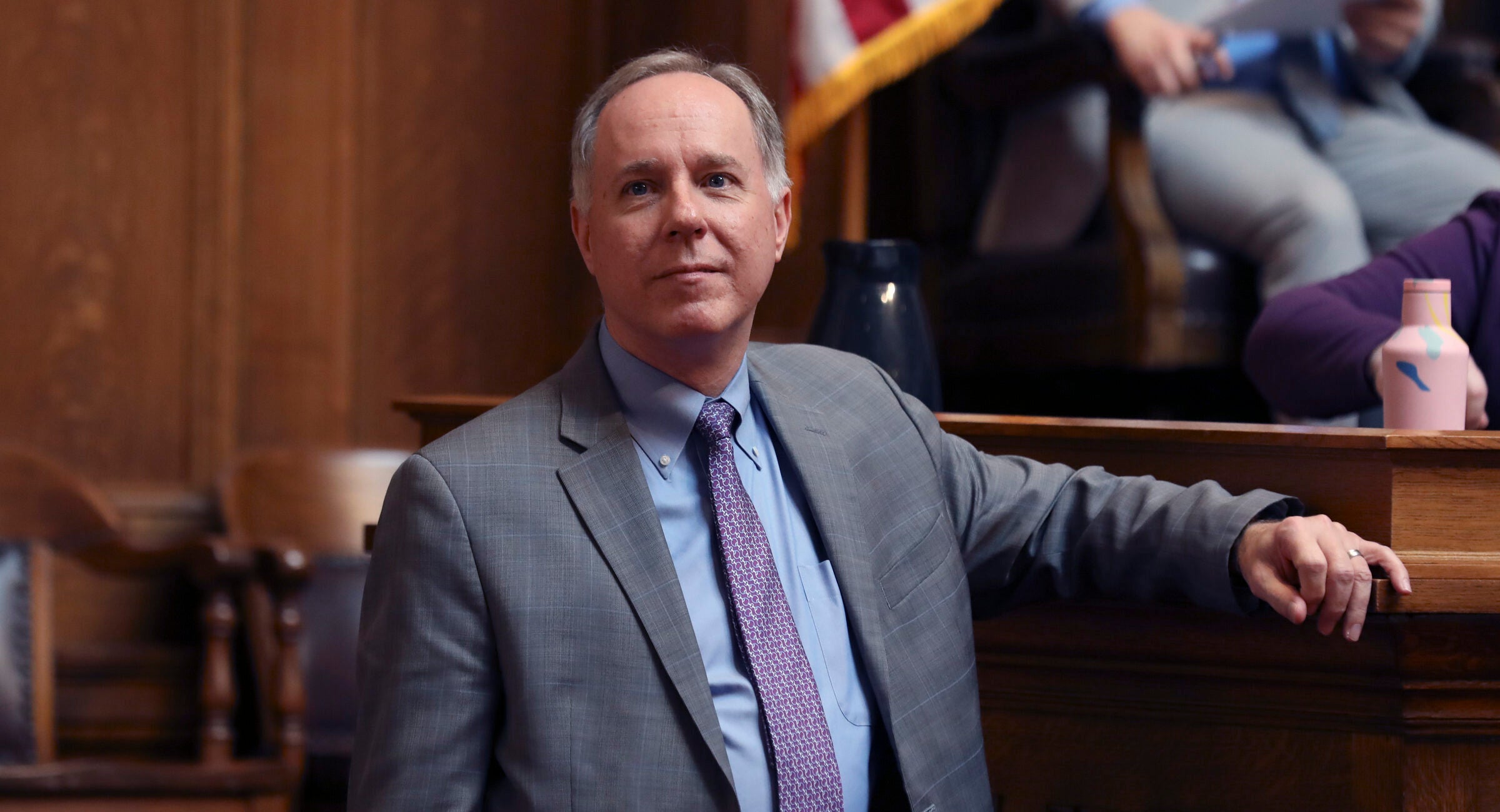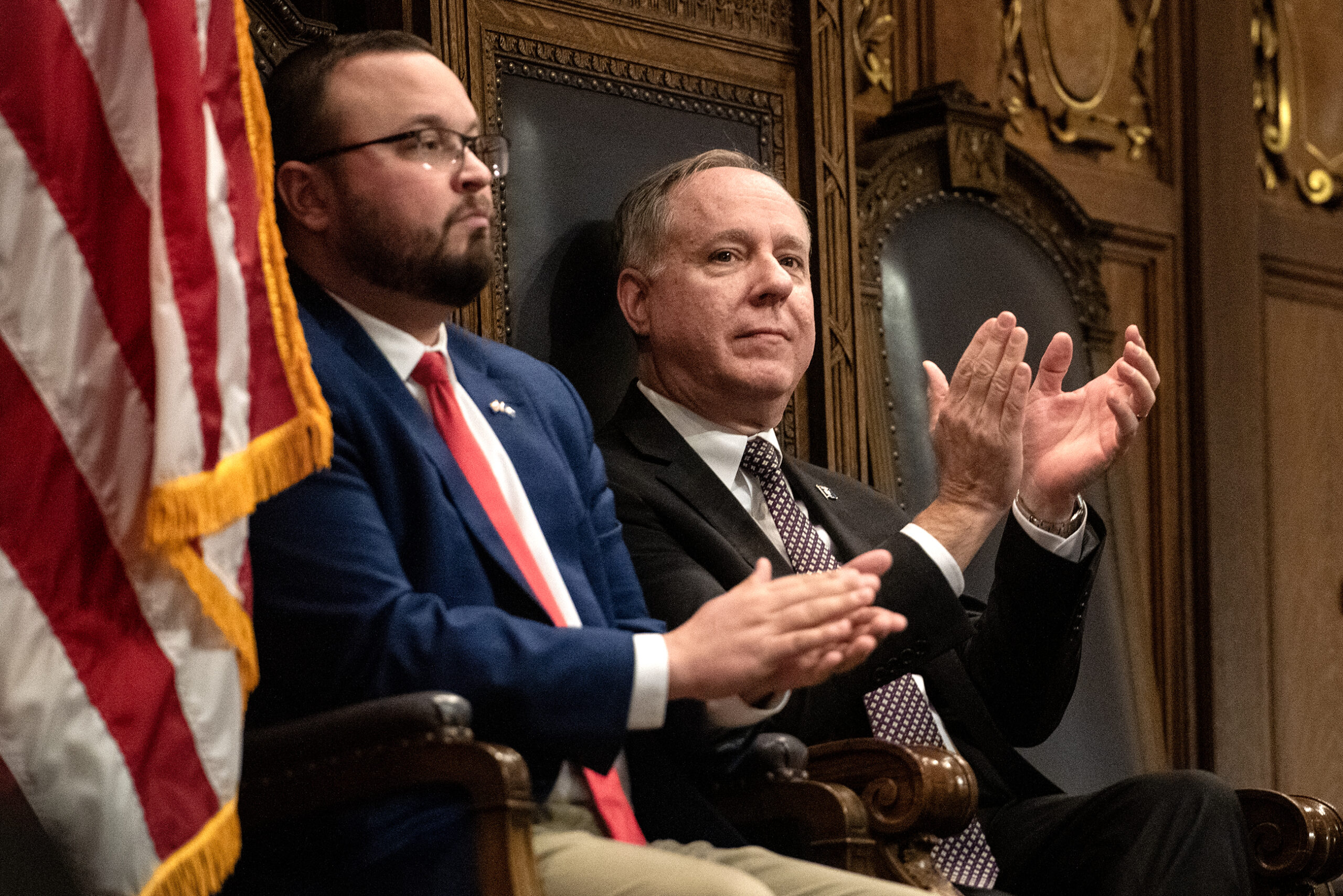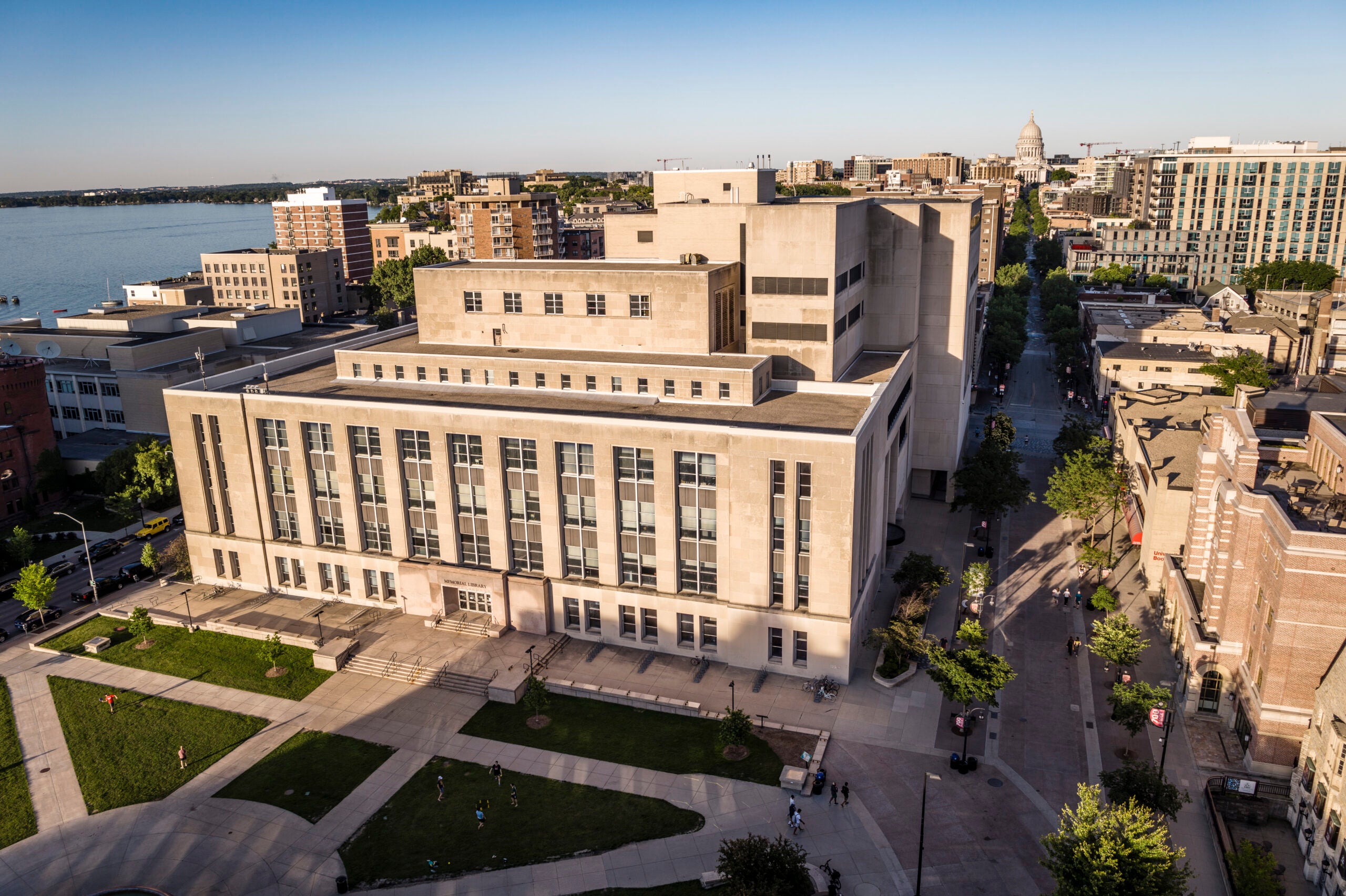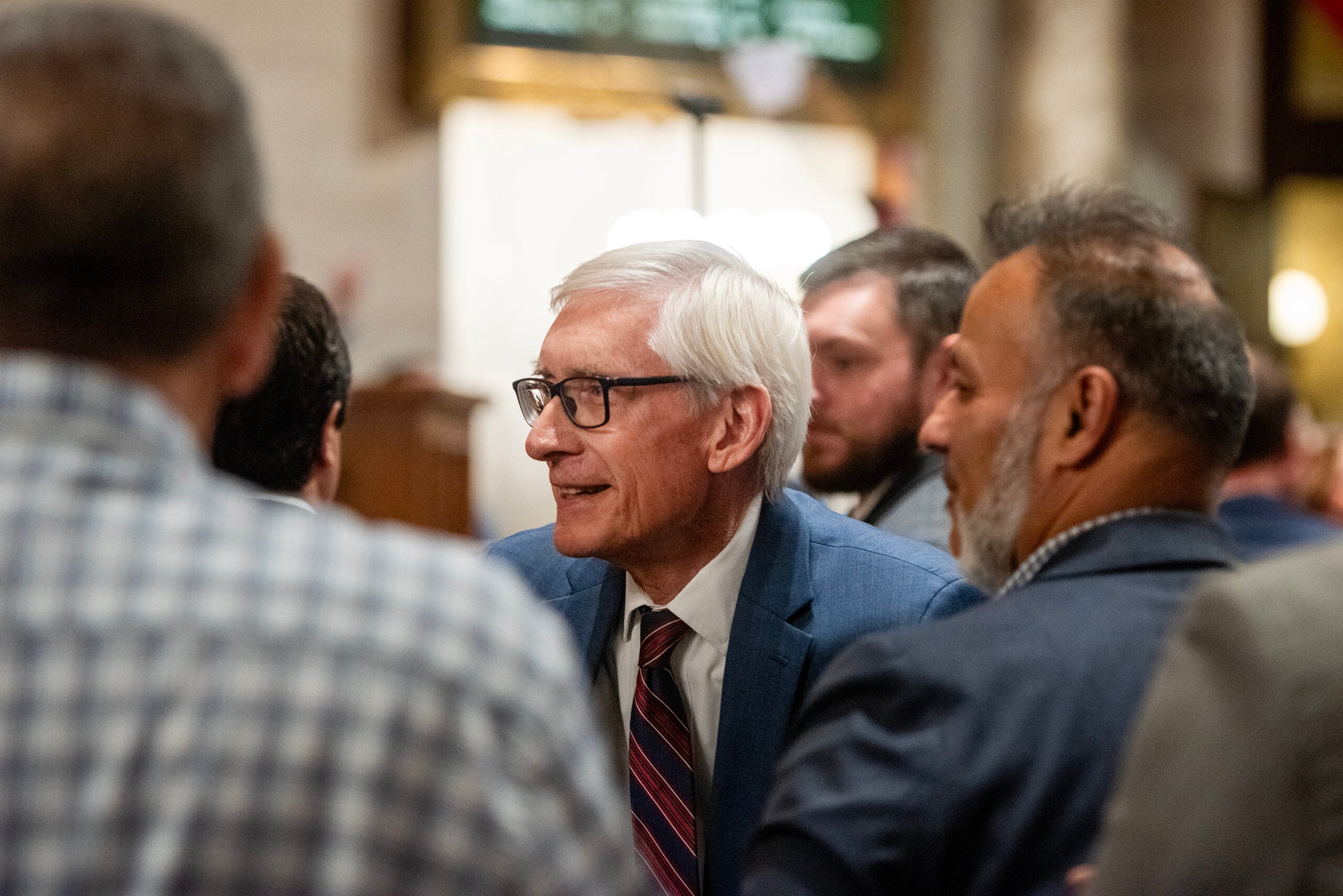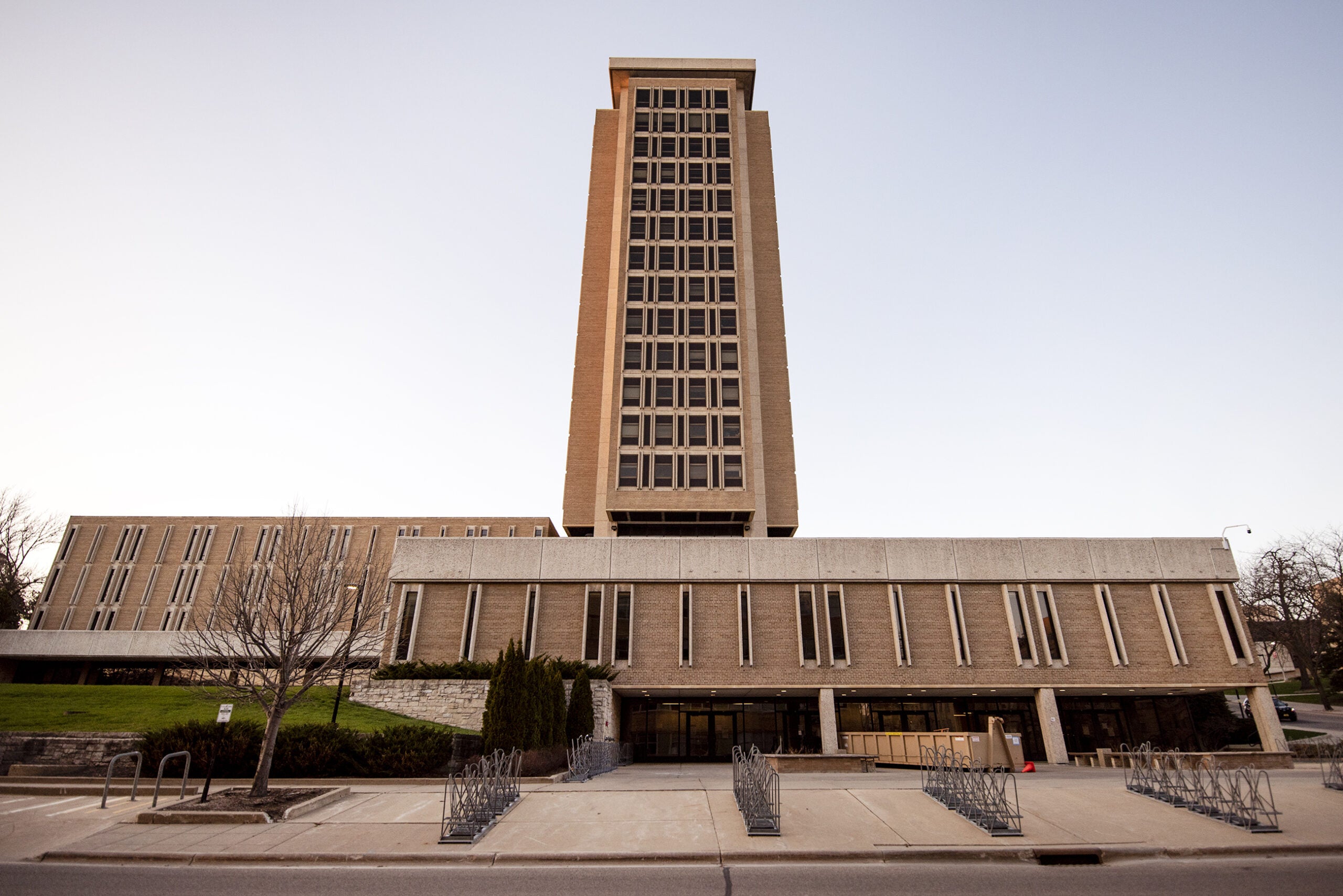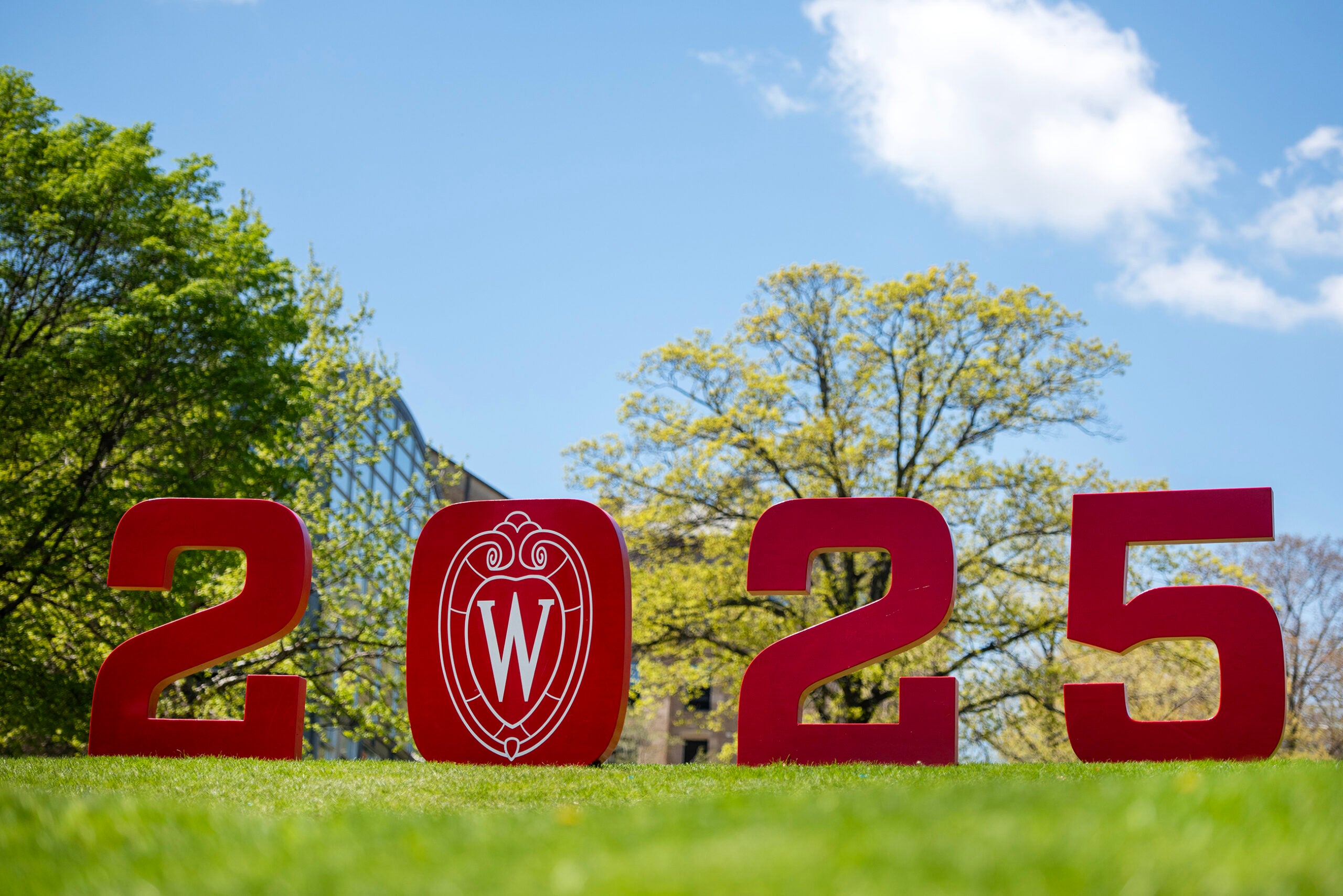Around 34,000 employees of the Universities of Wisconsin will see pay raises in January that have been blocked by Republicans for nearly six months in a standoff with campuses over diversity, equity and inclusion programs.
With a 5-1 vote Tuesday, the Legislature’s Joint Committee on Employee Relations gave final approval for the cost-of-living raises, which were set to go into effect in July under the state budget passed by Democrats and Republicans earlier this year.
According to a spokesperson for UW, a 4 percent raise will take effect on Jan. 11, with a lump sum payment for hours worked dating to July 2, 2023. An additional two percent raise will go into effect on July 1, 2024.
News with a little more humanity
WPR’s “Wisconsin Today” newsletter keeps you connected to the state you love without feeling overwhelmed. No paywall. No agenda. No corporate filter.
Despite the raises being included in the state budget, Assembly Speaker Robin Vos, R-Rochester, announced in September that he would try to block them from taking effect until UW campuses eliminated DEI programs and staff, claiming they are divisive and akin to liberal indoctrination of college students.
In October, Vos made good on the threat and approved raises for some state employees but declined to take up increases for UW workers.
Before the vote Tuesday, State Sen. Dianne Hesselbein, D-Middleton, chastised Republicans for using “peoples’ paychecks as pawns for partisan political gain” and said DEI is “important to everybody in the state of Wisconsin.”
“While you pursue this unpopular agenda, do not lose sight of the real world impacts your policies have on the state of Wisconsin,” Hesselbein said. “We’ve heard it time and time again that Wisconsin, like every other state, is in a war for talent and we need workers. But the policies Republicans are advancing do not make the state as welcoming as it should be.”
Vos responded by reiterating his claim that DEI stands for “division, exclusion and indoctrination” and said it’s something “that nobody in the Legislature and nobody in the public should be supportive of.”
“The idea of increasing diversity so that we have more people from every background as a successful part of our society is something that we all agree on,” Vos said. “But unfortunately, what’s happened far too often across state government and across the country is that we have used exclusionary policies to justify some kind of a social metric that only a few people truly support.”
Democratic Gov. Tony Evers filed a lawsuit with the Wisconsin Supreme Court earlier this year against lawmakers, arguing that Republicans were “unconstitutionally and unlawfully obstructing basic government functions” by blocking pre-approved raises and funding for a state conservation program. The court, with its new liberal majority, hasn’t decided yet whether to hear the governor’s case.
Evers sent a letter to justices Tuesday, stating the committee’s vote to approve the UW raises “does not affect” the lawsuit.
“If this issue is not resolved now, JCOER can perpetually hold its veto threat over UW’s head in future budget cycles,” Evers said. “And if JCOER can evade judicial review every time UW files suit or submits to a JCOER demand, the validity of this veto power might never be resolved.”
Tuesday’s vote largely finalized a deal that surfaced for the first time earlier this month and initially seemed headed for failure.
On Dec. 8, news broke that Vos negotiated a deal with the UW President Jay Rothman to release the funding for raises and building projects, including a new UW-Madison engineering building. In exchange, UW would agree to freeze DEI staffing positions through 2026 and refocus around 40 positions focused on diversity.
A day later, the board rejected the deal, but reversed their position on Dec. 13. Board of Regents President Karen Walsh said it was one of the board’s “toughest votes in memory.” She assured students and employees that the UW’s commitment to students of all backgrounds remains “a core value” and said the Vos deal won’t change that.
After the JCOER vote Tuesday, Vos said he has faith that Republican lawmakers “will begin a much needed, long term, in-depth review of every part of DEI and state government.”
“This is just the first step and hopefully a lot more to come,” Vos said. “So, with that, Merry Christmas.”
The only vote against green-lighting the raises came from Senate President Chris Kapenga, a Republican from Delafield.
Editors note: WPR staff are employees of UW-Madison.
Wisconsin Public Radio, © Copyright 2026, Board of Regents of the University of Wisconsin System and Wisconsin Educational Communications Board.

